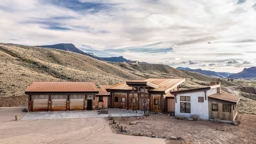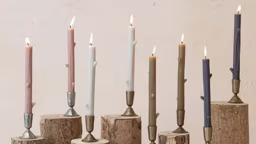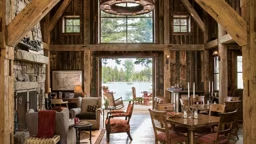
Written by Sally A. Kane, Esq.
A cabin or cottage is much more than a piece of property; it’s a place where bonds are formed and memories are made. Wherever your retreat is located, recalling days spent swimming, fishing, hiking, skiing or simply whiling away an afternoon with family and friends is a key part of the equation. These moments will be recounted time and time again now and for generations to come.
While the cabin ideal is designed to help you to forget about everyday matters like taxes, mortgages and future repairs, these are exactly the factors you should address so that your cabin can remain in your family for good. With a little forethought and planning, you can preserve it for generations to come.
The Costs of Cabin or Cottage Ownership.
Your investment in your family retreat returns untold personal rewards. The lifetime of memories you earn is worth every dime you spend buying and maintaining your vacation home. No doubt your children feel the same way.
However, good intentions and deep love for the cabin will not pay the bank, the IRS, the insurance agent or the contractor if the roof begins to leak. While forming your estate plan, be mindful of the financial obligations associated with owning the cabin. You can defray these costs through careful planning so your kids never have to worry whether they can afford the place.
Forms of Real Property Ownership.
In your heart, the family cabin belongs to your entire family. However, only the deed holders are the true legal owners, and the type of ownership affects their rights to the property. There are several different forms that ownership can take. Here are the most common:
Tenants by the Entirety.
Married couples typically hold real property as tenants by the entirety. Under this type of deed, you and your spouse are equal owners of your cottage so when one of you dies, the other will own the property. However, many couples don’t consider that the surviving spouse may remarry down the road. If the surviving spouse then dies or divorces, the future spouse may have a claim to the property.
Joint Tenants with Right of Survivorship.
As joint tenants with right of survivorship, two or more people have an undivided, 100-percent interest in the property. When one owner dies, the other owners absorb the decedent’s interests. If you were to deed the property to two siblings as joint tenants, for example, the sibling to die first could not bequeath the cabin to her or his family, but instead the surviving sibling would acquire sole ownership. The cabin would pass down one line, instead of to your grandchildren and great-grandchildren as you might intend.
Tenants in Common.
Tenants in common own individual shares in the property, which may be of unequal size and can be transferred to third parties through sale or inheritance. The percentage owned by one child could be subject to a creditor’s lien if the child acquires a large debt, a circumstance that could put the property in jeopardy. Your child’s spouse could also lay claim to your child’s share of the cabin, should she or he divorce.
Benefits of Putting Your Cabin Into Trust.
A living trust — often referred to as an inter vivos trust — is an estate-planning instrument that allows you to control the use, transfer, ownership and funding of your cabin during your lifetime and upon your death. The trust, not you or your children, owns the cabin.
The trustee manages the trust’s assets on behalf of the beneficiaries. You may act as both trustee and beneficiary. When you die, the remainder of the trust passes to the family members you named as beneficiaries to be managed by the person you named as trustee. This arrangement offers several advantages for you and your family, as outlined here:
Protecting your cabin or cottage from creditors.
Because the trust owns the property instead of you, your creditors cannot attach liens to it. At the time of your death, the cabin wouldn’t be considered part of your estate and would not be subject to estate-tax rules. Likewise, your kids never own the property either and therefore can avoid the risk of creditors’ liens in the future.
Paying expenses.
Your children may not be able to afford the mortgage payments, taxes, property insurance and upkeep on the property. Without financial resources, they might one day face the heartbreaking decision to sell the home they cherish. By depositing money into a trust, you can ensure that funds are available to cover the costs of homeownership.
Keeping the peace.
When multiple families are involved, they might not agree with one another on the amount of maintenance and upgrades needed on the property or the division of responsibilities. Leaving these tough decisions to your children can place an unnecessary strain on their relationships. The trust account takes the money out of the equation so your children can enjoy the cabin without calculating who owes what.
Reducing taxes.
Some types of trusts offer substantial income tax benefits. Money the trust earns on investments belongs to the trust, not to you personally, and so may not be considered income. Your financial advisor or lawyer can counsel you on the appropriate trust formation that meets your estate planning and taxation goals.
Paying Off Your Mortgage.
A spouse or children who are not on your mortgage cannot automatically take over payments. Upon your death, the bank expects full payment if you are the only borrower. Do not assume that refinancing is an option for your family. Lending requirements have become very strict. Banks insist that the borrower make a steady income, which may be problematic for a retiree, regardless of her or his level of financial security. Your kids’ credit may be affected by student loans or mortgages on primary residences.
Ideally, owning the cabin outright relieves your family of refinancing concerns. However, paying off the mortgage may not be the right option for you, especially if it would mean transferring funds from other stable or lucrative investments, such as your IRA or a stock portfolio earning higher returns than the interest you are accruing on your mortgage. Even if your estate is able to pay off the mortgage, your surviving spouse could be placed in the position of choosing between the cabin and other treasured assets or crucial income sources.
One solution to this issue is to take out a life insurance policy in the amount of your remaining mortgage. The beneficiary can pay off the mortgage with the proceeds and the money is often tax-free.
Your Next Step.
Because these matters are complex, it is important to retain a lawyer with knowledge about the estate laws of the state where you live as well as the state in which the cabin or cottage is located. No matter how healthy or young you are, it is never too soon to start planning for the future. With a well-considered estate plan in place, you can confidently imagine your great-great-grandchildren’s dinner conversations about how much fun they had at the family cabin.










